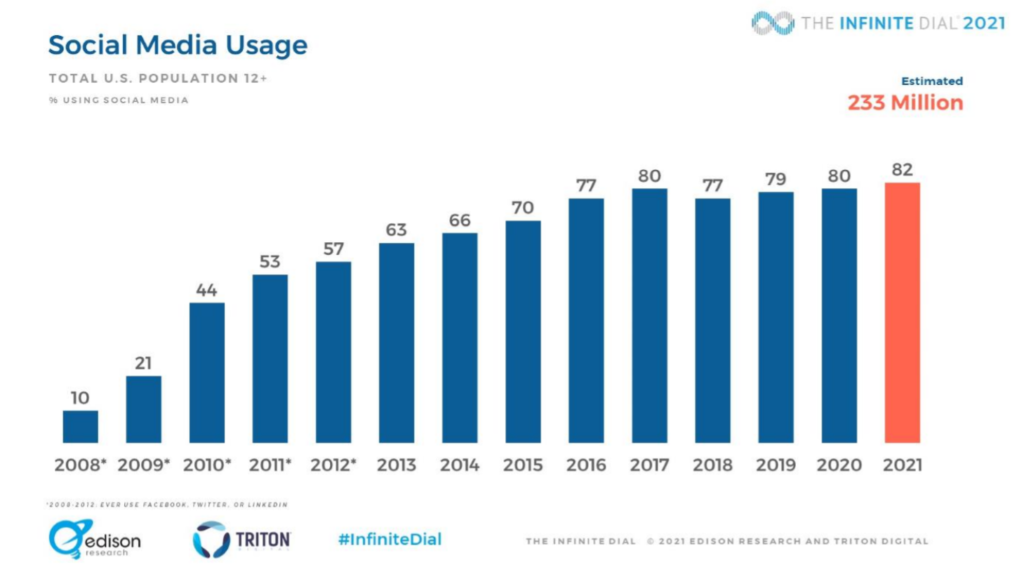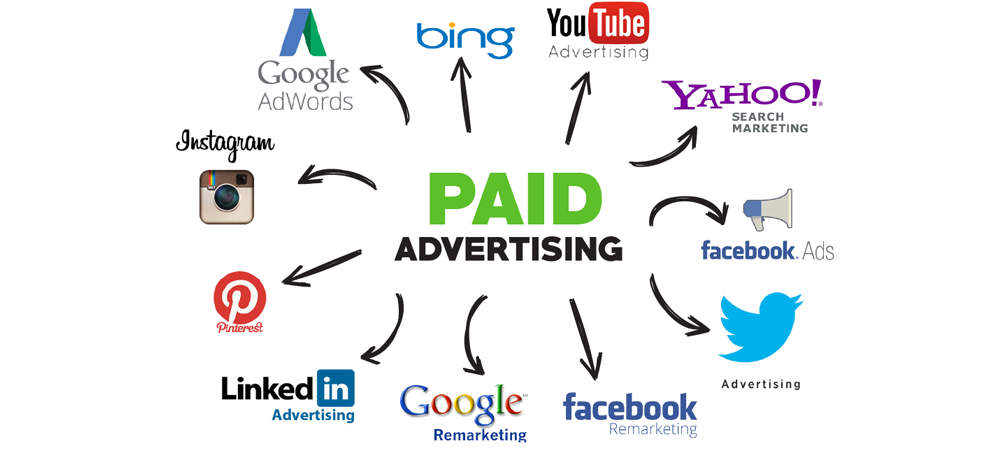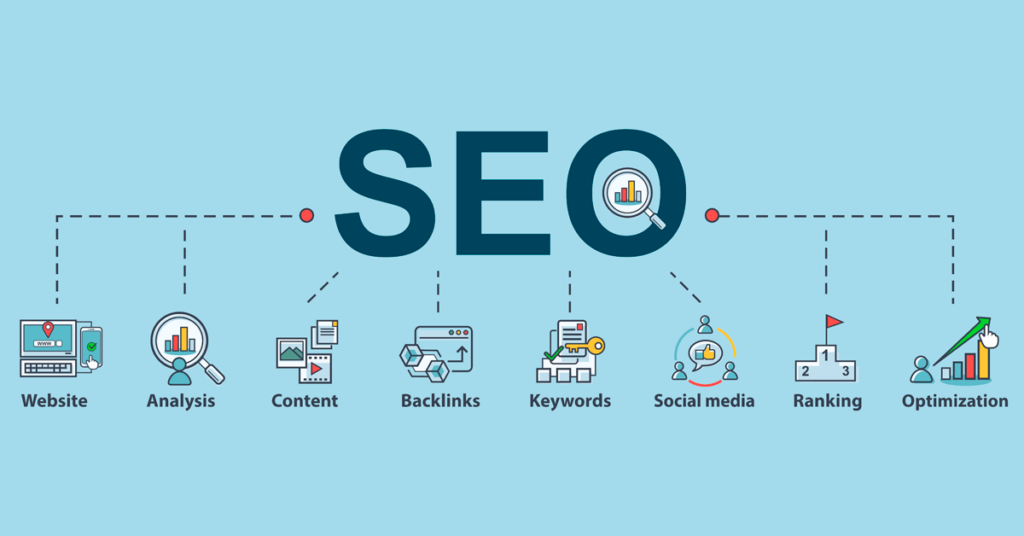A question that should pop into your mind is, “how can a screenwriter build audience awareness?” This is a question that I feel is very important and MUST be answered. In this blog post, I’ll break down several ways for screenwriters to build audience awareness and why it’s important that they do.
What Is Audience Awareness?
Audience Awareness is defined as the ability to understand and empathize with the wants, needs, and interests of an audience. Audience awareness is important nowadays because without it, you’re like the tree falling in the forest and nobody hearing or knowing that you fell.
You have to get out and let people know that you’re here and you have written a script that’s worthy of being read. You have to let people know that it’s an entertaining read and their time should be spent checking it out.
Why Is Audience Awareness Important?

According to the statistics in the picture above, there’s going to be even more people using social media in the coming years. As a screenwriter, not using it to your advantage is going to be a massive disservice in getting your work out and building a loyal audience.
Audience awareness can help build a following for your intellectual property which can then lead to you being in a better position to sell your script.
Didn’t think of that, did you?
The days of being able to sell something like a spec without any kind of pre-built audience for it are long over. This is the way now and social media is one of the tools you can use to help your screenwriting career.
Who knows? Maybe through your extensive marketing efforts on social media, your script could be seen by an industry executive. That’s one of the reasons why building audience awareness is so important.
But let’s take selling and any attachment to Hollywood out of the equation here. Let’s take you being a screenwriter out of the equation too.
Look around the internet nowadays with how people are doing their passion projects in creative ways. In all honesty, if you love the art of screenwriting, you really only need to find a way to make money to support your writing.
No, I don’t mean a 9-5 working retail. Though, there’s nothing wrong with that approach. What I’m talking about is being able to make money around your writing.
For instance, I’ve turned my scripts into a magazine where I’m able to also put ads for affiliate products and also sell merchandise in my store. That’s just one of many ways of being able to work on your passions and still being able to make money doing it.
When it comes to screenwriting or any other passion you have, there’s no one way of achieving it. Be versatile, be creative and use your natural born ingenuity to get what you want.
How To Find Your Target Audience

Audience awareness is key when creating content. Whether you’re writing for a blog, website, or even just for yourself, it’s important to keep your target audience in mind at all times. This not only means tailoring your content to be appropriate for them, but also making sure that you’re targeting the right people in the first place.
There are a few different ways to go about figuring out who your target audience is, and each has its own advantages and disadvantages. The most common way is to create reader personas – fictional representations of your ideal reader. You can then use these personas to help you figure out what kind of content would appeal to them, as well as where to market it.
Another way to determine your target audience is to look at your existing readership. What are they like? What do they want? What are their interests? You can use this information to create a profile of your target reader, which will help you figure out what content to create.
No matter how you determine your target audience, it’s important to keep in mind that they’re not a monolith. They’re comprised of individuals with different wants, needs, and interests, so you’ll need to tailor your content accordingly. Luckily, there are a variety of ways to do this, so you can find the right approach for your business.
Audience awareness is key when creating content – after all, you can’t create something that people want if you don’t know who your target audience is. Keep these tips in mind and you’ll be on your way to creating content that resonates with your readers.
Audience Awareness Examples
Some common ways to increase your audience awareness are to consider your audience’s:
- Location
- Age
- Gender
- Race
- Ethnicity
- Religion
- Socioeconomic status
- Educational level
- Occupation
- Life experiences
- Values and beliefs
- Attitudes and prejudices
For example, if you were giving a presentation on family camping trips to an audience of working parents in the city, you would want to focus on how easy it is to find affordable equipment rentals, how to pack light without sacrificing comfort, and how to keep kids entertained on long car rides.
However, if you were giving the same presentation to a group of grandparents in the suburbs, you might focus more on safety tips for dealing with wildlife, choosing a campsite near family-friendly activities, and preparing for changing weather conditions.
In both cases, you would want to make sure to mention the benefits of family camping trips (including quality time together, getting back to nature, and creating lasting memories), but your approach would be different based on your audience’s demographics and interests.
It’s also important to be aware of your own biases and assumptions when crafting content for a specific audience. For example, if you’re writing about climate change for a conservative audience, you may choose to focus on the potential economic impacts of global warming rather than its environmental effects.
Or if you’re writing about immigration for a liberal audience, you might want to focus on the personal stories of immigrants and their families rather than the economic benefits of immigration. Regardless of your own beliefs, it’s important to be respectful of your audience and present both sides of any issue in a fair and balanced way.
Audience awareness is an important skill for any writer, speaker, or content creator to master. By taking the time to understand your audience’s needs, interests, and beliefs, you can create more relevant, engaging, and effective content that resonates with them on a personal level.
Best Social Media Site for Audience Awareness

Facebook still is the king when it comes to build audience awareness. Last year it had 2.7 billion active users. On the day of the US midterm elections, Facebook had more than 128 million users engage with its platform. That’s a lot of people! Compare that to the number of people who voted (just over 55 million), and you can see why Facebook is such a powerful tool for communication.
This was also evident in Brazil’s recent presidential election. Facebook was used by all of the candidates to communicate with voters, and it was even reported that almost half of Brazilians got their news from the social media platform. Again, Facebook’s reach is undeniable and makes it an incredibly valuable resource for companies and organizations looking to build awareness among their audiences.
There are a few key things to keep in mind when using Facebook for audience awareness:
Consider using paid advertising. Facebook’s algorithm has changed over the years, and organic reach is no longer what it used to be. In order to guarantee that your content is seen by your target audience, you may need to invest in some paid ads.
Be sure to track your results. Facebook provides a wealth of data that you can use to measure the effectiveness of your campaign. Keep track of things like reach, engagement, and conversions and adjust your strategy accordingly.
Make sure your content is high quality and relevant. With so much content being shared on Facebook every day, you need to make sure yours stands out. This means creating posts that are interesting, informative, and visually appealing.
Make use of facebook groups for marketing purposes. You can even create your own group to build audience awareness. Groups provide a great way to engage with your target audience and build relationships with them. Responding to comments and questions shows that you are attentive and engaged, which can help build trust and loyalty among your followers.
By keeping these things in mind, you can use Facebook to reach a larger audience and build awareness for your brand and work.
Strategies For Building Audience Awareness
Strategies for building audience awareness are just as important as knowing which social media site to use.
Influencer Marketing

This can help increase brand awareness for your business by utilizing the social media platform of an influencer. You can identify potential influencers by looking at people who have a large following and are talking about topics that relate to your industry. Once you’ve found some potential influencers, you can reach out to them and offer them compensation in exchange for promoting your brand on their social media channels.
User-Generated Content

Another great way to increase brand awareness is by sharing user-generated content on your own social media channels. This could be in the form of product reviews, testimonials, or even just pictures of customers using your products. Sharing this type of content not only helps to promote your brand, but it also helps to build trust and credibility with your audience.
Paid Advertising

If you have the budget, paid advertising can be a great way to increase brand awareness for your business. By targeting people who are already interested in what you do, you can significantly grow your reach and drive more traffic to your website or social media pages. Just be sure to carefully target your ads so that you’re only spending money on clicks or impressions from people who are likely to be interested in what you have to offer.
These are just a few of the many strategies that you can use to build audience awareness for your business. By using a combination of these methods, you can help ensure that as many people as possible know about your brand and what you have to offer.
Content Marketing

One of the most effective ways to build audience awareness is through content marketing. By creating helpful and informative blog posts, infographics, videos, or other types of content, you can attract people to your website who may not have otherwise heard of your business. Once they’re on your site, you can then start to build a relationship with them by providing even more valuable content. Over time, this can help turn casual visitors into loyal customers or clients.
SEO

Search engine optimization (SEO) is another important way to increase brand awareness for your business. By optimizing your website and content for the keywords that people are searching for, you can ensure that your business shows up in the search engine results pages (SERPs). This can help to drive more traffic to your website and attract new customers who may not have otherwise heard of you.
These are just a few of the many strategies that you can use to increase brand awareness for your business. By using a combination of these methods, you can reach a larger audience and attract more readers.
Related:


Leave a Reply